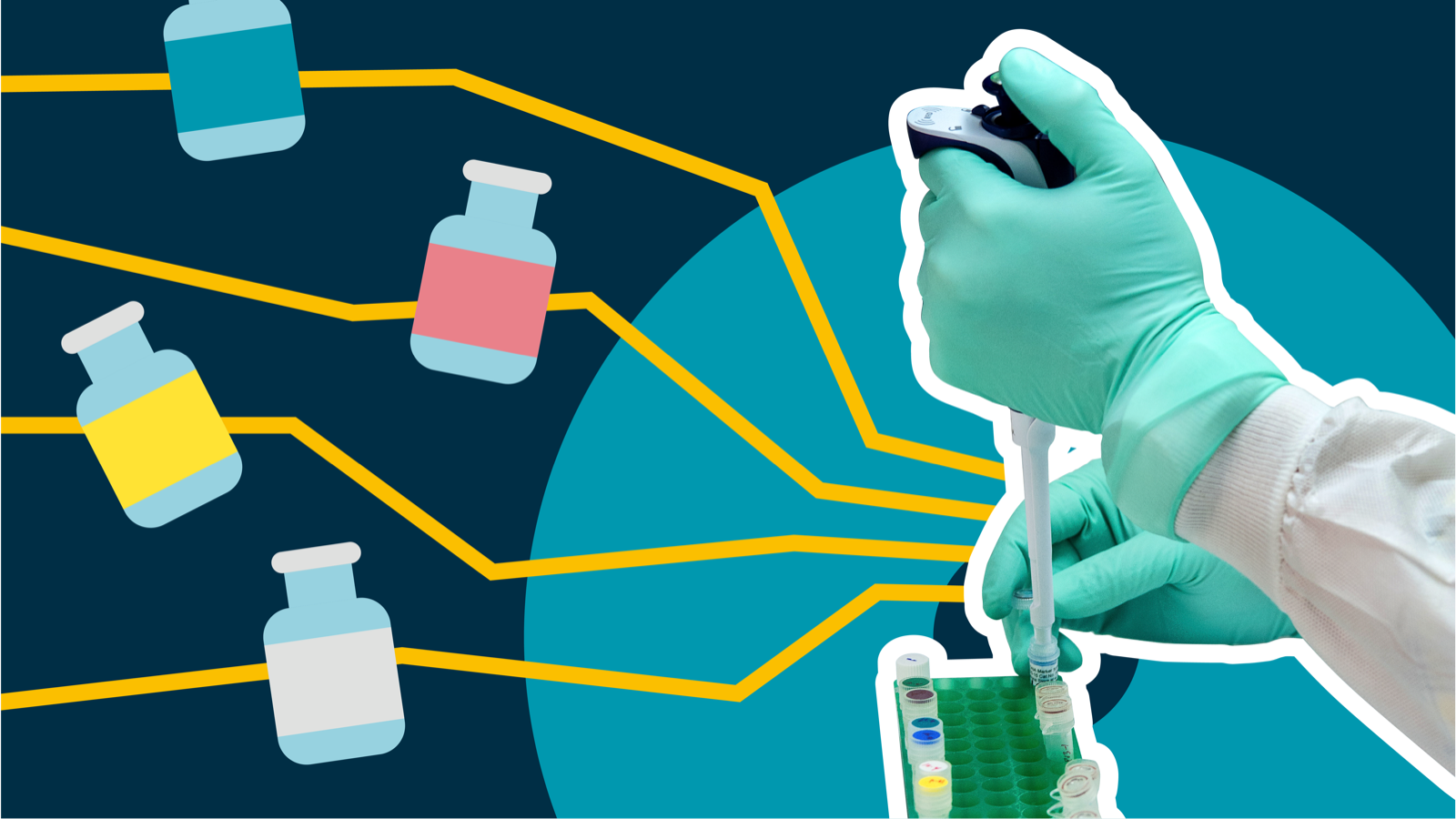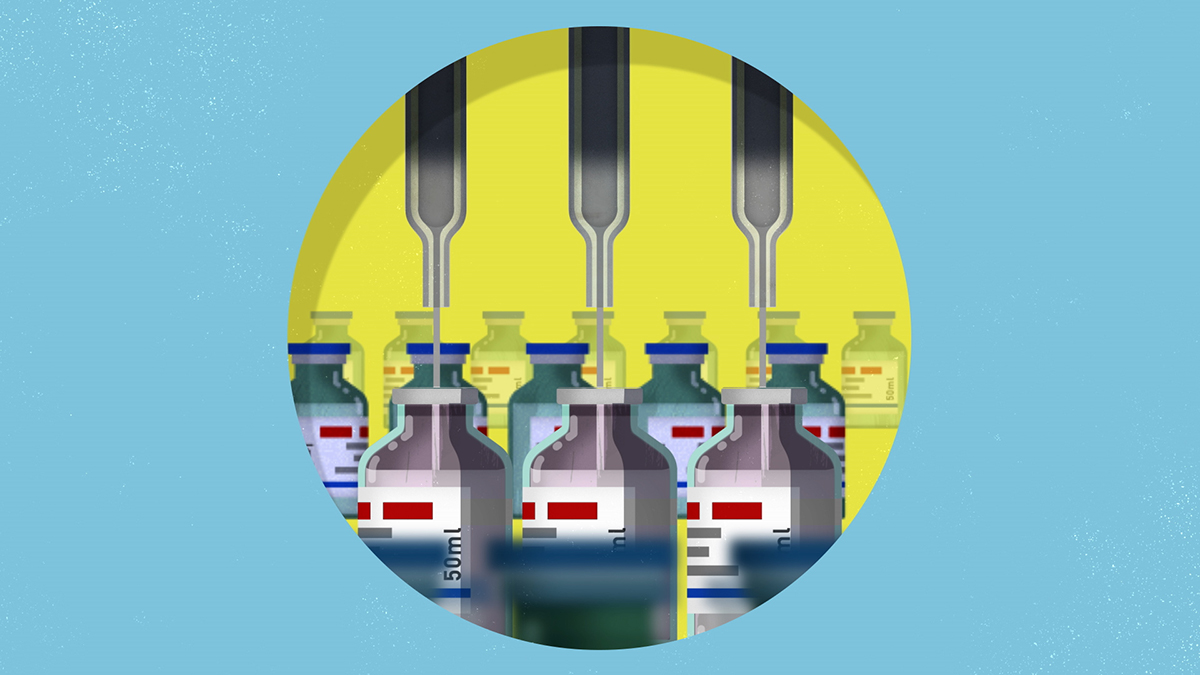Four reasons why we need multiple vaccines for Covid-19
Having a range of Covid-19 vaccines available for people to use around the world will be essential to bringing the pandemic under control. Here’s why.


Going into 2021, a handful of vaccines to protect against Covid-19 were already approved for use in parts of the world.
So why, with highly effective vaccines already in use, is it important to keep working on and investing in the hundreds of Covid-19 vaccines still in development?
We need Covid-19 vaccines to work for a diverse range of people – including older people and those with underlying health conditions. At this stage, we don’t have sufficient data to understand how effective the vaccines are for people of all ages, from different ethnic backgrounds, with different immune systems; and for different strains of the virus. We also don’t know how long immunity might last for, or whether the vaccines stop transmission of the disease.
With questions like these unanswered, we can’t rely on one or two vaccines to help us recover from Covid-19.
And it might be that one vaccine is not as effective for everyone. We often need multiple vaccines for a disease, to be able to protect different groups. For example, this winter the UK is using four different flu vaccines. Which vaccine is given depends on a person’s risk group and how their immune system might respond – the vaccine given to a teenager with a robust immune system is not the same as that given to someone over the age of 65.
Vaccines are a bit like different painkillers: aspirin, paracetamol, ibuprofen – they all have the same goal, they just achieve it in slightly different ways.
If we have a varied Covid-19 vaccine portfolio, we can be confident we will find the right vaccine for every person.
To be able to get control of the virus we will need to produce and roll out vaccines at a scale and speed never seen before. To meet the aim of vaccinating high-risk populations around the world by the end of 2021, estimates suggest we need at least 2 billion vaccine doses.
Because many countries have pre-ordered large quantities of the vaccine, a large share of the initial production is already spoken for. Companies are scaling up production as much as they can, for example Moderna have stated they hope to produce 600 million doses of their vaccine in 2021. However, current models predict that there will not be enough vaccines to cover the world's population until 2023 or 2024.
We have also never licensed or scaled-up an RNA vaccine before – the technology that the Moderna and Pfizer-BioNTech vaccines use – and doing this requires specialised equipment. So there may be unforeseen manufacturing issues while new facilities and processes are being set up, potentially causing delays and limiting availability.
By developing and investing in multiple vaccine candidates we stand a much better chance of having the volume of doses we need to get the virus under control.
We will need to get Covid-19 vaccines to everyone who needs them, wherever they are – from people living in metropolitan areas and cities, to rural populations in remote corners of the world.
Both the Pfizer-BioNTech and Moderna vaccines need to be stored and transported at exceptionally low temperatures, the Pfizer-BioNTech vaccine at -70C and the Moderna vaccine at -20C, to ensure they stay viable. In comparison, most childhood vaccines require storage at between 2C to 8C, similar to the temperature in a domestic fridge.
The requirements for cold storage and transportation will be difficult to meet in many locations, and no vaccine requiring such cold storage has ever been rolled out to so many countries all at once.
In addition, both RNA vaccines currently have a relatively high cost per dose, although this should fall once large scale production and supply chains are in place. The news that the Oxford-AstraZeneca vaccine costs significantly less has been widely welcomed, but it is hoped that more highly effective vaccines will be offered at a lower cost.
Dosing creates an additional challenge. Most approved vaccines to date require two doses, spaced a few weeks apart. Developing effective single-dose vaccines will be critical to protect people for whom getting two doses might be difficult, such as those without access to regular healthcare, or refugees. Some manufacturers, including Johnson & Johnson, are currently developing single dose vaccines, and if the phase III results show these to be effective, it could be a turning point in global vaccine access.
These technical considerations mean it is vital that we continue to develop and invest in multiple vaccine candidates, which may be able to offer high levels of efficacy without the need for such cold storage, or multiple doses.
To overcome the pandemic, people all around the world must have access to vaccines, treatments and tests. However, many of the vaccines being developed are being bought up by countries making deals directly with pharmaceutical companies for their populations.
More than half of all advanced Covid-19 vaccine orders have been from high-income countries, with the US accounting for more than one sixth. The EU alone has reserved over 2.3 billion doses of a number of different vaccine candidates, while the UK has secured over 350 million vaccine doses – more than five times the size of its population. Pfizer-BioNTech have already promised all doses from their first round of production to a small number of countries.
The COVID-19 Vaccine Global Access Facility (COVAX) is a multilateral effort to make sure that poorer countries are not frozen out of access to vaccines. It works by supporting the research, development and manufacturing of a wide range of Covid-19 vaccines, and negotiating their pricing. All participating countries, regardless of income levels, will have equal access to these vaccines once they are developed.
While many of the vaccine candidates, including the Oxford-AstraZeneca and Moderna vaccines, are part of COVAX, others are not. It is hoped more will join the initiative in the coming weeks.
As of 20 January 2021, just 25 doses of vaccine had been administered in a lowest-income country, while more than 40 million doses had been given in higher-income countries.
It is essential that countries with vaccine doses secured in bilateral deals commit to donating excess doses to COVAX to be distributed fairly.
This article was originally published on 20 November 2020.
Having a range of Covid-19 vaccines available for people to use around the world will be essential to bringing the pandemic under control. Here’s why.

